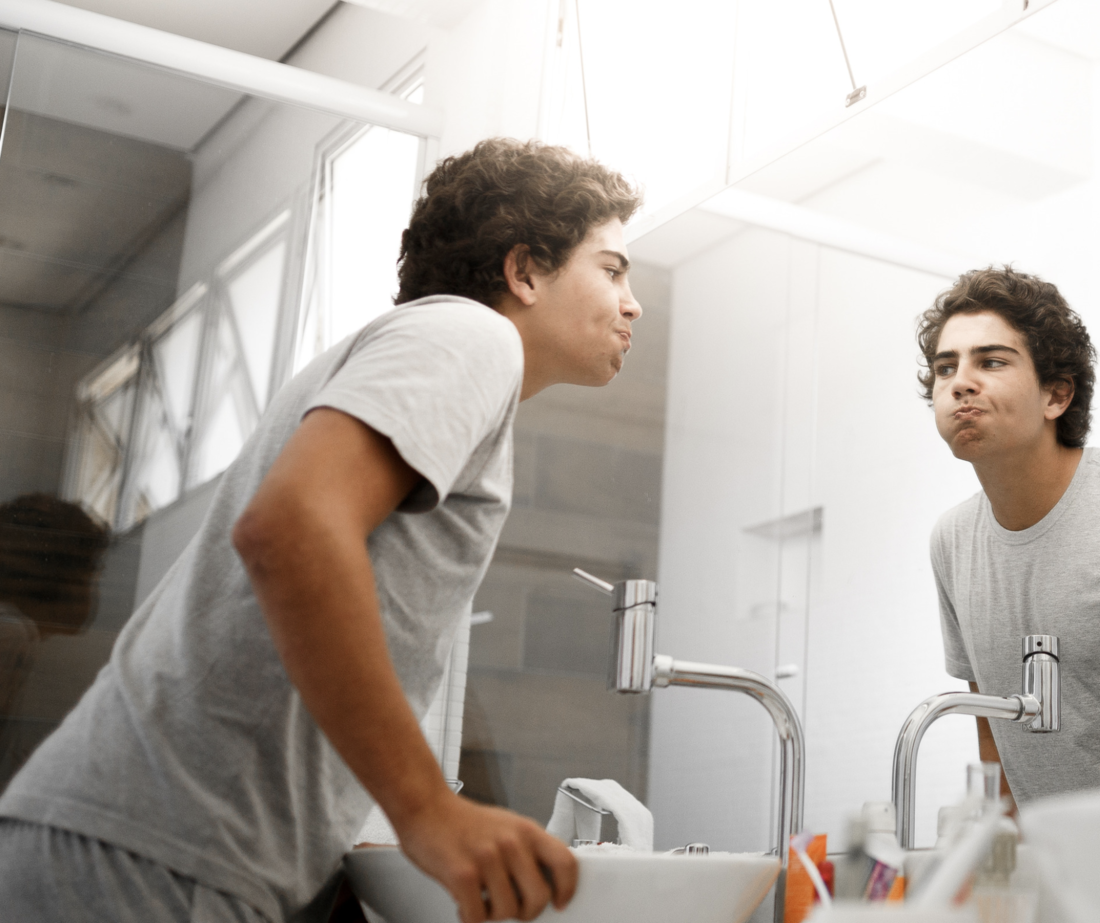How You Can Help
Piloting your teen through puberty can be challenging on many fronts. Supporting your son or daughter to establish healthy hygiene habits can do more than manage their acne and banish smelly socks. It can help them morph into capable, appealing young adults.
Here are our top tips for helping your teen to form healthy hygiene habits.
Showering and shampooing
Courtesy of their changing hormones, teenagers are mostly smellier and sweatier than younger kids. Help them manage this by:
- Explaining the need for daily showering and conscientious washing of face, feet, hands, underarms and groins.
- Helping them choose mild soaps and shampoos and a gentle face wash to use twice a day to help manage acne.
- Encouraging frequent hair washing – make the link between greasy locks and angrier acne.
Sweating and smelling
Your teenager has always had a healthy set of sweat glands. Puberty hormones make them more active and changes in chemical composition make teen sweat smell stronger. Manage that musky odour by:
- Letting them pick their favourite antiperspirant deodorant, remind them to use it after showering.
- Reminding them to change clothes daily. Socks and underwear are the minimum requirement, complete changes are the gold standard. Try motivating them by describing how sweat bacteria generate smell by feasting on dead skin cells and body fluids. Promote porous cotton over less permeable synthetics.
- Reassure them. If your teen is worried that they’re sweating more than their friends, reassure them that what’s normal for one person may be different for someone else. If they continue to be anxious about this, ask for your doctor’s advice.
Shaving
- Watch for signs of hair growth and take your lead from them.
- Offer a demonstration once they broach the subject. If your teen is interested in other hair removal methods help them find the information.
- Offer to assist for their first facial or leg shave.
How to handle things well
It’s easy to assume our teens will pick up healthy hygiene habits unaided. In fact, they need our help to master these along with all the other complexities that arrive with adolescence.
Allow teens of both sexes extra bathroom time. Whether they’re learning to shave or managing their period, treating their acne or scrubbing their feet they’ll appreciate the extra privacy. Your empathy and patience will help everyone.
Start early
Ideally, your teenager’s healthy hygiene habits will build on the foundations you laid when they were small. If handwashing, teeth cleaning and regular baths or showers are already ingrained in their routine, teenage changes will probably happen more easily.
Start handing over responsibility for teen style healthy hygiene when your child is about ten. Changing their clothes, showering without being asked, and washing their hair are doable for most kids around this age.
Set an example
Like it or not, our kids take more notice of what we do rather than what we say. Don’t expect your teens to toss their day old sports socks in the wash if you don’t. Nor are they likely to pick up the dental floss if you never use it.
Make healthy hygiene a responsibility not a battleground
Try to help your teen see that taking care of their hygiene is a step towards adulthood rather than a set of randomly applied rules to be broken.
- Put it on the same footing as sporting commitments, household chores and studying. Put simply, it’s ‘how we do things around here’.
- Expect and back your teen to take care of their hygiene and praise them quietly and occasionally when they do.
Be patient and persistent
Remember that adolescence is often a downright tough and confusing time. Your teen will probably have lots of questions about hygiene. Calm honest answers can go a long way to countering that innate eyerolling resistance.
Get professional support
If you're finding it hard to convince your teen to adopt a healthy hygiene habit. We’re here to help. Our family doctors work skilfully and kindly with young people and their parents to help resolve hygiene and other health issues.

